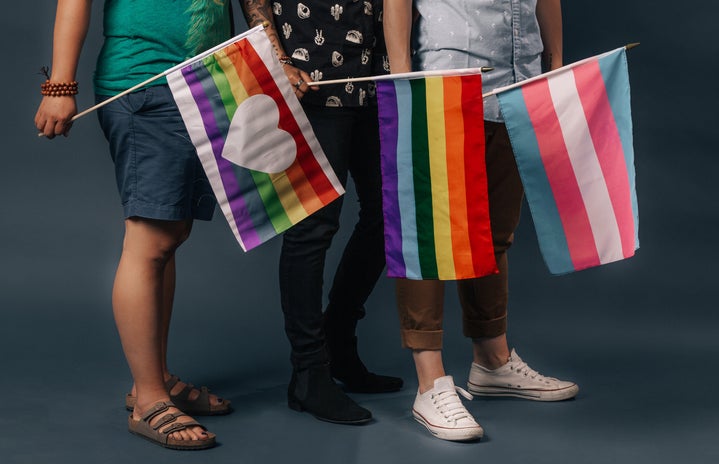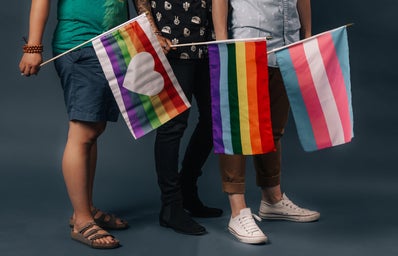With it being National Transgender Awareness Week, I think it’s an important time to recognize ways in which you can be support your transgender friends and family in social spheres. Struggling with gender identity can sometimes feel like an uphill battle, so finding ways to establish awareness in everyday scenarios can help to validate non- cisgender identities. So, here’s five tips on how to be a transgender ally.
- If you mistake someone’s pronouns apologize, correct yourself and move on.
When you’re learning new pronouns, sometimes you will slip up. That’s okay. Everyone makes mistakes from time to time. What matters is how you react to the situation. If you accidentally misgender someone, the situation is not about you. You must find the best way to make the person you’re talking with feel as though they are still welcome and validated. Entering apologies with “I’m sorry, this is hard for me” and “I’m trying really hard, but I just can’t get the hang of it” makes the other person feel as though their gender identity is at fault. It is not a burden to learn someone’s pronouns. You shouldn’t place any guilt on your transgender friends when YOU are the one making the mistake. The best thing to do is apologize, correct yourself, and move on.
- Neopronouns are valid and you should educate yourself about them.
Neopronouns or “New” pronouns are most often used by those in the neurodivergent community, as they can experience gender in unique ways. They are pronouns that exist beyond the English language. Pronouns like she/her, he/him, and they/them don’t accurately embody their feelings towards gender. Some common neopronouns include Fae/Faer, Ze/Hir, and Ve/Ver. While some might dismiss this as being too radical or “cringey,” pronoun validation is incredibly important to another person’s identity and should be respected.
- Be careful with that your compliments are not microaggressions.
Microaggressions are defined as subtle and often unintentional forms of discrimination. Even when there are good intentions behind a micro-aggressive statement, ignorance can be a tool for causing immense pain in marginalized groups. For the transgender community, trying to put a person’s gender expression into a box can be highly offensive. Telling someone that “they do or do not look trans” can be incredibly harmful. There is no such thing as “looking trans” because every transgender person has their own diverse form of gender expression. No one owes you a specific gender performance, so don’t make assumptions based purely off another person’s physical appearance.
- Share your pronouns.
Sharing pronouns is not exclusive to transgender individuals. In fact, introducing yourself with pronouns can be a great way to be an inviting presence in social spheres. Whether through your emails, formal group introductions, or simply your Instagram bio, sharing your pronouns can be a way to signal to others that you are supportive of the transgender community and open to hearing other’s pronouns. However, do not expect every person to feel comfortable sharing this information. Some individuals might still be figuring out their identity, and pronouns can be a challenge. Just remember to be willing to hear and respect boundaries.
- You’re never going to be the perfect ally, but you have to educate yourself.
There is no such thing as the perfect ally, and the goal for allyship should not be built around perfection. Perfection implies that there is nothing to change about a person’s perspective. Allyship is all about embracing change. Views on gender are always evolving, so the most important way for you to support the transgender community is to educate yourself on their past and current issues. Recently, lawmakers have been attacking this very marginalized community, so learning about current policies and taking action against anti-transgender legislation can be the first step toward being a transgender rights activist.


